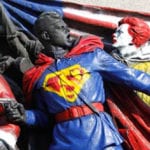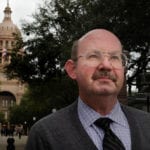 History
History  History
History  Movies and TV
Movies and TV 10 Movie Adaptations That Ruined Everything for Some Fans
 History
History 10 Dirty Government Secrets Revealed by Declassified Files
 Weird Stuff
Weird Stuff 10 Wacky Conspiracy Theories You Will Need to Sit Down For
 Movies and TV
Movies and TV 10 Weird Ways That TV Shows Were Censored
 Our World
Our World 10 Places with Geological Features That Shouldn’t Exist
 Crime
Crime 10 Dark Details of the “Bodies in the Barrels” Murders
 Animals
Animals The Animal Kingdom’s 10 Greatest Dance Moves
 Movies and TV
Movies and TV 10 Box Office Bombs That We Should Have Predicted in 2025
 History
History 10 Extreme Laws That Tried to Engineer Society
 History
History 10 Wars That Sound Made Up (but Absolutely Happened)
 Movies and TV
Movies and TV 10 Movie Adaptations That Ruined Everything for Some Fans
 History
History 10 Dirty Government Secrets Revealed by Declassified Files
Who's Behind Listverse?

Jamie Frater
Head Editor
Jamie founded Listverse due to an insatiable desire to share fascinating, obscure, and bizarre facts. He has been a guest speaker on numerous national radio and television stations and is a five time published author.
More About Us Weird Stuff
Weird Stuff 10 Wacky Conspiracy Theories You Will Need to Sit Down For
 Movies and TV
Movies and TV 10 Weird Ways That TV Shows Were Censored
 Our World
Our World 10 Places with Geological Features That Shouldn’t Exist
 Crime
Crime 10 Dark Details of the “Bodies in the Barrels” Murders
 Animals
Animals The Animal Kingdom’s 10 Greatest Dance Moves
 Movies and TV
Movies and TV 10 Box Office Bombs That We Should Have Predicted in 2025
 History
History 10 Extreme Laws That Tried to Engineer Society
10 Times People Put Their Differences Aside And Helped One Another
“I disapprove of what you say,” Evelyn Beatrice Hall once said (wrongly attributed to Voltaire), “but I will defend to the death your right to say it.”
It is a motto many people aspire to live up to—but it is not always easy. We tend to hold our opinions so tightly that we treat them as a part of who we are, and when someone disagrees, we often feel like it’s an attack.
Some people, though, have gone beyond what could possibly be expected of them. A handful of people have reached across the divide and risked everything to save the absolute last person they would ever be expected to help.
10A Rabbi Invited a KKK Grand Dragon to Live in His Home

A few days after Rabbi Michael Weisser moved to Lincoln, Nebraska, he got a phone call. The voice on the other end called him a “Jew Boy.” Weisser would be sorry, he said, that he had ever moved to his town. Two days later, a package of anti-Semitic pamphlets showed up on his door with a card that read, “The KKK is watching you, scum.”
Weisser soon realized he was being antagonized by Larry Trapp, the Grand Dragon of the KKK in Nebraska. Trapp, he found out, was a blind man who had lost both legs to diabetes. Instead of being angry, though, Weisser decided to reach out to him.
He started calling Trapp once a week and leaving messages offering to help him out. Eventually, Trapp picked up, and Weisser greeted him by saying, “I heard you’re disabled. I thought you might need a ride to the grocery.”
Trapp hung up, but he called back a few days later, shaken. He told Weisser, “I want to get out of what I’m doing and I don’t know how.”
Weisser visited Trapp and befriended him, and after a while even invited Trapp to move into his home. There, Weisser and his wife took care of the blind and disabled man. It worked. Trapp did not just quit the KKK—he ended up converting to Judaism.[1]
9The First Black Mayor of Washington Calmed a Race Riot

When Martin Luther King Jr. died, people were angry. Across America, people started to riot. They smashed windows, threw Molotov cocktails, and even bottled the firefighters who tried to put the flames out. And in Washington, D.C, the man in charge of calming them down was Walter Washington: the man who, shortly after, would become the city’s first black mayor.
Washington was as angry as anybody else, but he didn’t think rioting would fix anything. “What’s new about it? Martin being shot?” Washington later questioned. A black man getting killed, he said, “isn’t new.” And burning down a city would not bring him back to life.
So, he walked down the streets of D.C., trying to calm people down. Instead of just ordering them to stop, he asked them to help the people whose homes had been destroyed. Of everyone he asked, Washington claims, only one person said no.
He was not able to completely stop the riot, but he calmed it down. One witness would later say, “Mayor Washington probably saved hundreds of lives.”[2]
8Prison Inmates Save a Guard’s Life
Prison guard Kenneth Moon was sitting at his desk quietly when a prisoner decided to make a jailbreak. He rushed behind the unsuspecting Moon, wrapped his arm around his windpipe and tried to choke him to death.
Other inmates saw what was happening—and instead of taking the chance, they rushed to the rescue. Three men rushed over within seconds, knocked the attacker to the ground and started prying him off of Moon.
One, David Schofield, called the other guards for help—but before they even made it, a crowd of more than a dozen other inmates had rushed onto the scene to help Moon get back onto his feet.
“I was thinking about this is somebody’s father and somebody’s son,”[3] Terry Carswell, one of the men who helped, said afterward when asked why he did it, “Nobody deserves to die like that.”
7A Man Got the Lynch Mob Trying to Kill Him to Donate to His School
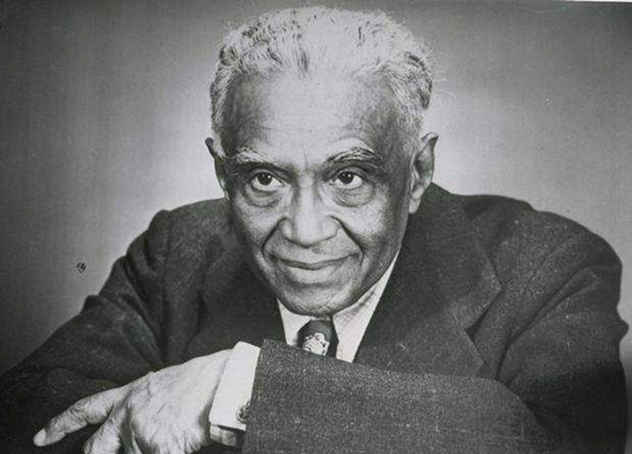
Laurence Jones was nearly killed by a mob in 1918. Rumors had been going around that the black Americans in Mississippi were planning a rebellion, and when a white crowd heard Jones tell his congregation to “fight to survive and succeed,” they figured he must be the one behind it. He would have to die.
The mob dragged Jones out of the pines, where they put a rope around his neck and kindling under his feet. Then they gave him a chance to say his last words before he was hung and burned alive.
Jones told them about the school he had opened to educate black children who did not have the same chances as everyone else. He listed off the white men who had helped him get it off the ground, trying to call for unity. He must have been incredibly eloquent because it actually worked.
An old Civil War veteran recognized the names and realized Jones was telling the truth. “We have made a mistake,” the old white man told the mob. “We ought to help him instead of hang him.”
The mob pulled him down and even passed around a hat. They raised $52.40 for his school. Jones did not hold any grudges over it. “I have no time to quarrel,” he said, “and no man can force me to stoop low enough to hate him.”
6Muslims in Pakistan Built a Christian Church
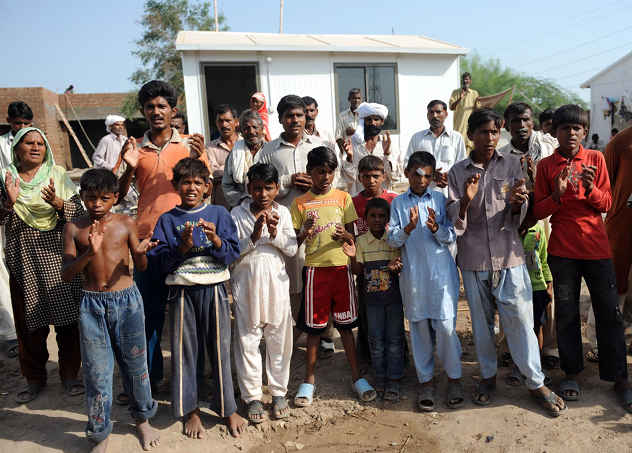
The people in the Pakistani village of Khaksabad got worried when they heard about violence in the nearby town of Gojra. A Muslim mob had attacked a Christian community, and it had torn the whole town into a mess of violence and hatred. They did not want that happening in their town.
When their local Christian church was swept away in a monsoon, they got the chance to do something about it. The Muslims of the town started a fundraiser to help the Christians out, partly just out of sympathy and partly as a way to bring two split sides of the community together.
Muslims helped out eagerly, donating every penny they could, and they raised enough to build a brand new church for their Christian neighbors.[4]
“A church is also a house of Allah,” one Muslim shopkeeper said about it. “We worship the same God.”
5A KKK Member Saved the Life of a NAACP Member
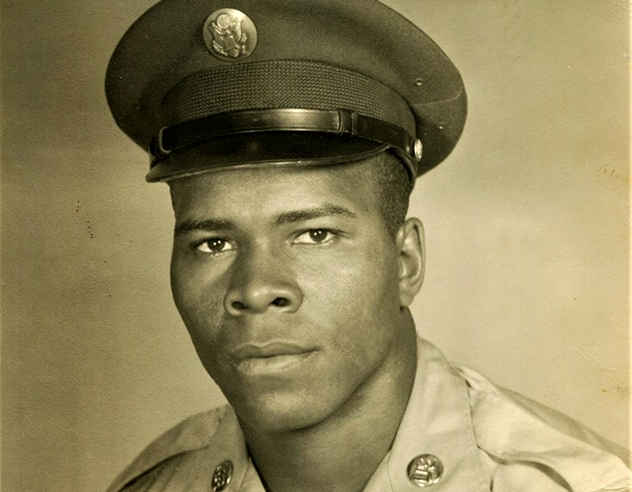
When John Brown was stationed in Vietnam, he found himself in command of a man named Rayford—in his words, “a card-carrying member of the Ku Klux Klan.”[5] And Rayford was not about to take orders from a black man.
John Brown was, himself, a member of the National Association for the Advancement of Colored People, and having to deal with a racist like Rayford made him angry. Rayford would flat out refuse to follow Brown’s orders, and Brown would get extra hard on him in response, one time even slapping him in the face with his NAACP membership card.
When Brown’s life was on the line, though, he was saved by the last person he would have expected. His fingers had been shot off, he was under fire, and he thought he was going to die. Rayford, though, ran through a hail of machine gun fire to rescue him.
Despite their differences, Rayford got Brown to safety. Brown never saw Rayford again. The experience, though, changed his life. He would later say, “I learned that two people, no matter what their differences are, or races, can come together on one accord.”
4A Criminal Saved the Life of the Cop Who Was Booking Him
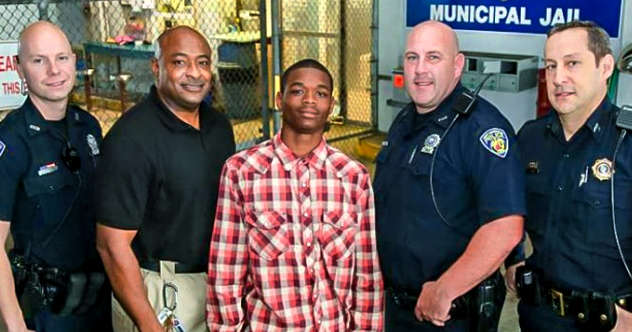
When Jamal Rutledge was dragged into the police station for violating his probation, it was hardly the first time his hands had been in chains.
He was locked in a room with Franklin Foulks, the officer who was booking him, when Foulks had a stroke. The officer collapsed to the ground, and Jamal was the only person who could see it happen.
Jamal tried to help him, but with his hands cuffed behind his back, he could not do much. So instead, he started kicking on the door and calling for help. Officers rushed in and gave Foulks CPR, saving his life.
The officer hailed Jamal as a hero and held a convention in honor of the man they had arrested. There, Jamal told the crowd his life would be different now; “People do bad things,” he said, “but they can change their life around.”[6] From that day forward, Jamal promised, he would be an upstanding citizen.
It didn’t happen. Jamal has been in and out of jail since he was eight years old—it is hard to change what life has shaped you into. Jamal was arrested again before long, and is currently in prison. He is still a lifelong criminal—but, as he proved by saving Foulks life, he is also a human being.
3Larry Flynt Tried to Save the Man Who Shot Him

Hustler publisher Larry Flynt was shot and paralyzed by a white supremacist on a rampage. His attacker was Joseph Paul Franklin, a serial killer who added Flynt to his list for creating a photo shoot that put a black man and a white woman together.
Franklin was caught, and years later, he found himself on death row, waiting for a lethal injection. Only one person fought to save his life—and to his surprise, it was Larry Flynt.
He had confined Flynt to a wheelchair for life, but Flynt still didn’t want him to die. Killing Franklin, he believed, was an act of revenge that solved nothing. He teamed up with the American Civil Liberties Union and filed lawsuits to try to get Franklin off of death row, saying, “I firmly believe that a government that forbids killing among its citizens should not be in the business of killing people itself.”[7]
It didn’t work, and Franklin ended up getting a lethal injection. Before he died, though, Franklin had a change of heart. He had to live alongside other races in prison, and it affected how he saw the word. He said, “I saw they were people just like us.”
2An Israeli and a Muslim Saved a Palestinian Terrorist

Ahmed Mansara was only 13 years old when he and his cousin ran through East Jerusalem with knives, stabbing innocent people.[8] They were Palestinians, and they were ready to give their lives to send a message of terror to Israel.
The attack stopped when his cousin was shot and killed by an Israeli police officer. Mansara, panicking, ran for his life, but was hit by a car. A whole mob of people swarmed him, some yelling, “Die!” Some were calling him a “son of a whore,” and some called for the police to shoot him in the head.
Mansara, though, was taken to a hospital jointly run by a Jewish doctor and Muslim. Mansara was a murderer, but he was just a boy—and it was their job to save him. They treated his injuries, giving him priority over some innocent people on the argument that his wounds were the worst, and they saved the life of a terrorist.
“We don’t ask who you are,” Ahmed Eid, a Muslim doctor at the Israeli hospital, said when asked why he didn’t leave Mansara to die. “We treat the terrorist the same as we treat the victim.”
1The Civil Liberties Union Stood up for the KKK’s Rights
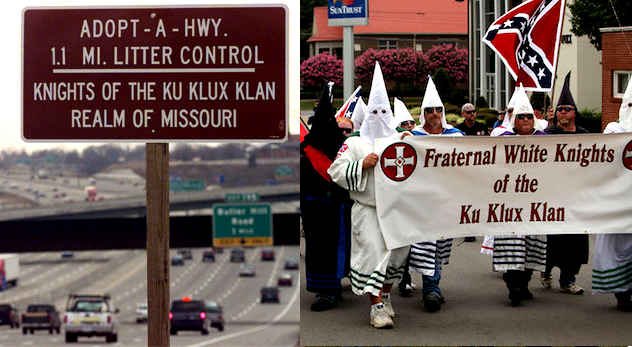
When the KKK adopted a part of the highway in Missouri, the state could not stop them from doing it. They had the same rights as everyone else, the Supreme Court ruled, and so if the KKK wanted their name on a highway clean-up sign, they had the right to do it.
Missouri, though, got the KKK back. They changed the name of the highway to “Rosa Parks Highway.”[9] Infuriated, the KKK refused to clean it. Once they were derelict in their duties, the state could legally ban them from adopting a highway—and they did.
Since then, though, the KKK has been fighting for the right to adopt a highway, saying, “We just want to clean up the doggone road. We’re not going to be out there in robes.” And they have gotten support from the last group you would expect: the American Civil Liberties Union.
The ACLU defended civil rights activists in the past, but they felt they needed to support the KKK this time. If the KKK lost the right to fight this in court, they argued, it would let the courts refuse to hear any group they wanted.
They defend equality and free speech, the ACLU argued, even if that means equality and free speech for the Ku Klux Klan.
For more feel-good lists like this one, check out 10 Incredible Acts of Heroism By Ordinary People and 10 Tips For Success In Everything.
